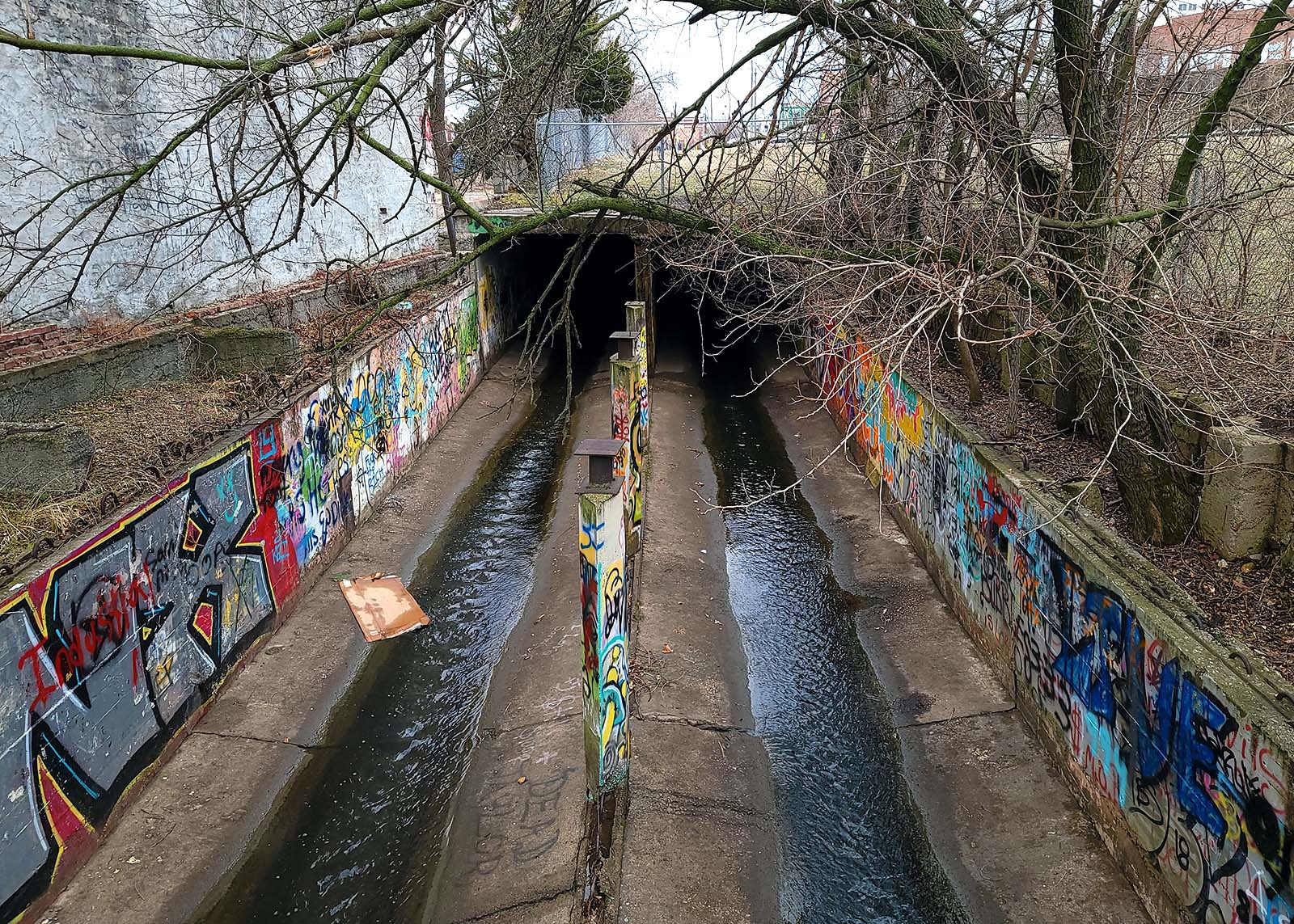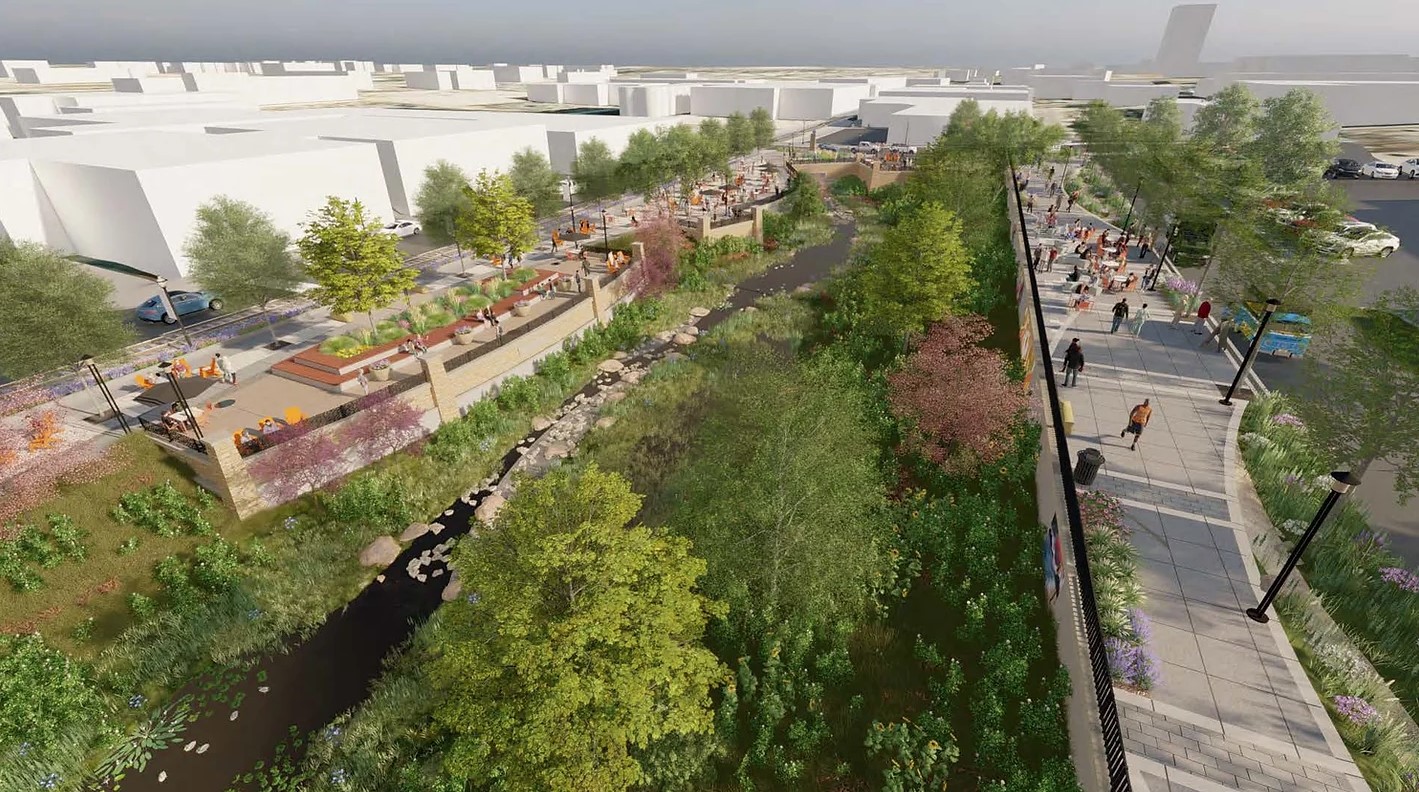The cost of Renew Jordan Creek, a quality of place and stormwater project that will daylight, or unearth portions of the waterway in downtown Springfield, has increased substantially in recent months.
In July 2023, the total cost of the project was estimated at $29.2 million. That cost has since ballooned to $37.5 million. With only $29 million in funding, the Springfield City Council is searching for other means to pay for the project.
Chris Dunnaway, a stormwater engineer with the Springfield Department of Public Works, updated council members on the status of Renew Jordan Creek and its budget deficit at the City Council’s Feb. 20 study session.
“The cost, frankly, scares me to death,” Mayor Ken McClure said at the meeting. “And we can’t just keep adding cost and adding cost without dealing with it in some way. Do I like the amenities here? Yes. Do I want to pay the cost? No.”
Costs will become clear through bidding process
Though Dunnaway said that the team behind Renew Jordan Creek anticipated a “little bit of a deficit,” he attributed the “significant” cost increases to market conditions, utility and railroad-related costs and scope added to the project. However, Dunnaway emphasized that the increase is an estimate, and they would have a clearer picture of the total cost when the Department of Public Works bids the project out for construction this summer.
Renew Jordan Creek is split up into three phases, with the latter phases — at Founders Park and east of the eFactory — unfunded at this time. Construction on phase one — between Main Avenue and Boonville Avenue, south of Mill Street — is scheduled to begin in September of this year and wrap up in Spring of 2026.
In addition to alleviating flooding issues and improving water quality, the project aims to promote sustainability through greenspace integration, enhance pedestrian access and greenway trail connectivity and provide amenities for public activities which could contribute to the creek becoming an economic catalyst for more development.
Potential sources to close funding gap

Of the $29 million in funding secured for Renew Jordan Creek, approximately $15.7 million is coming from tax revenues and other city government funds, with the remaining $13.3 million from various grants.
While the estimated cost of the project has increased by $8.5 million, the total deficit could be as much as $9.9 million due complexities tied to $1.4 million in unallocated grant funding, according to Dunnaway.
In order to make up the deficit, the city could secure up to $3 million in additional grants and a loan of $6.9 million from the State Revolving Fund, a low-cost financing program through the Missouri Department of Natural Resources. The City of Springfield has already been approved for $13 million, but will be required to hold a public meeting — likely to be held around the end of March or early April — as a part of an environmental compliance process to be eligible for the loan.

In order to pare down the cost, Dunnaway said some elements of Renew Jordan Creek have been pulled out of the project, including some plaza space, tree plantings and other landscaping.
Other council members shared McClure’s concern with the rising costs, though they emphasized their support for the project, even if the city can’t afford everything on its wish list at the start of construction.
“I like the phase approach — if we can’t do everything all at one time, then fine…but at least have something out there,” Zone 2 Councilmember Abe McGull said.
Zone 4 Councilmember Matthew Simpson suggested that program spaces for hospitality, retail and other activities be maximized in any future decision-making.

